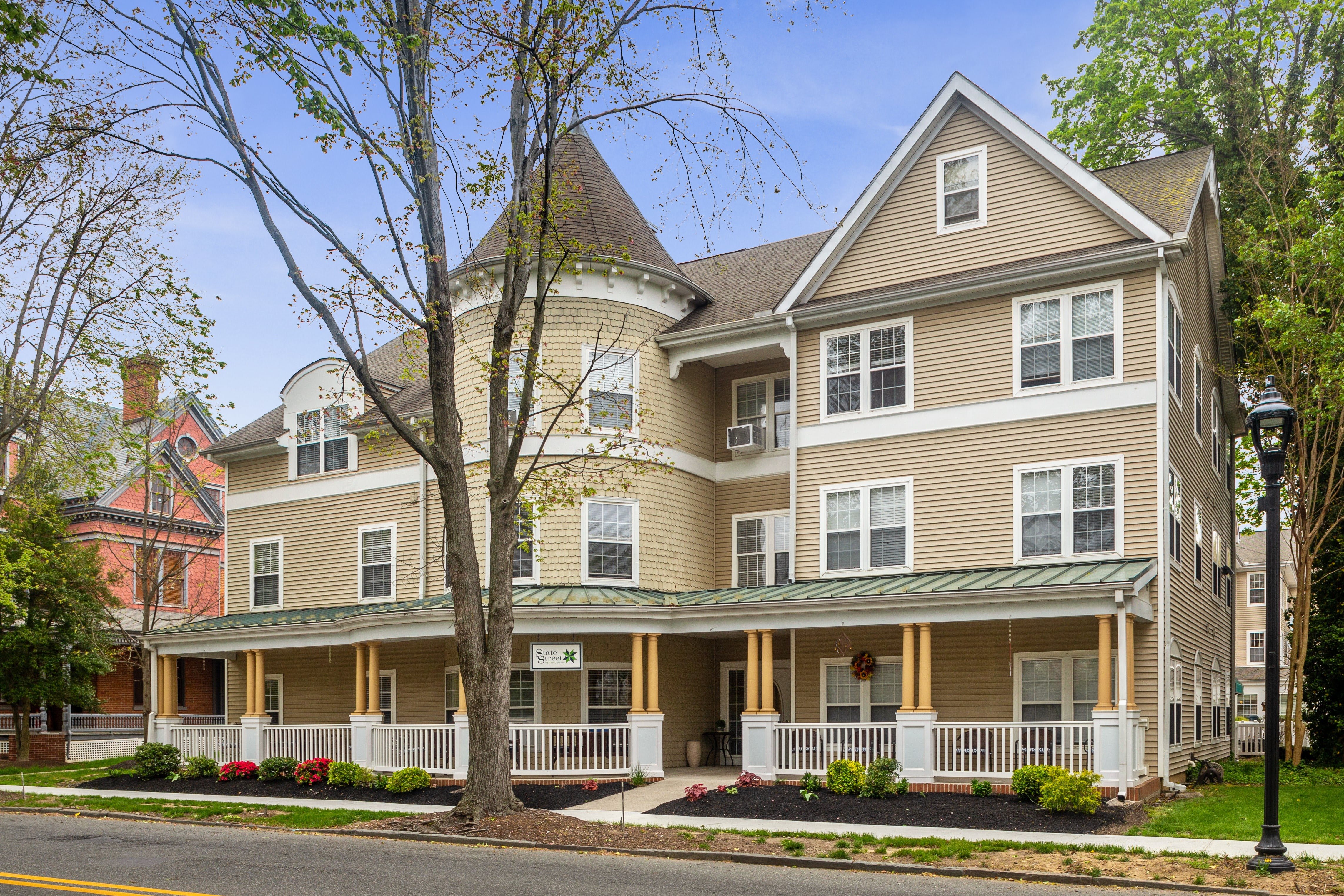Choosing Between Larger Homes and Small Memory Carehomes Charlotte
Choosing Between Larger Homes and Small Memory Carehomes Charlotte
Blog Article
All Concerning Memory Treatment Services: Why Small Memory Care Houses Are a Wonderful Option
Memory care solutions play a crucial role in sustaining people with Alzheimer's and dementia. Little memory treatment homes attract attention for their individualized technique and intimate setting. With lower staff-to-resident proportions, these homes cultivate stronger links and tailored treatment. Locals gain from enhanced social interactions and a safe setting. As family members discover alternatives, recognizing the special advantages of tiny memory treatment homes becomes essential. What aspects should be thought about when selecting the best home?
Recognizing Memory Treatment Solutions
While lots of may recognize with general elderly care options, recognizing memory treatment services is essential for households encountering the difficulties of cognitive decrease. Memory care especially satisfies people with conditions such as Alzheimer's illness and other forms of dementia. These solutions give a structured setting that focuses on boosting the lifestyle for locals through specialized care and support.Memory care centers are designed to assure safety and security and protection, frequently featuring protected environments to stop wandering. Educated personnel participants are available all the time to aid with day-to-day tasks, drug administration, and individual treatment. In addition, memory treatment programs frequently consist of cognitive stimulation activities, tailored to involve homeowners and promote psychological health. Households can gain from understanding these services, as they make it possible for informed decisions regarding their loved ones' treatment, ensuring that their details demands and preferences are attended to in a helpful and caring manner.
The Benefits of Small Memory Treatment Residences
Tiny memory treatment homes use distinctive advantages that can substantially improve the lifestyle for residents with cognitive problems. One substantial advantage is the intimate atmosphere, which enables for tailored interactions among team and homeowners. This smaller setting promotes significant relationships, decreasing feelings of isolation and anxiety commonly experienced by individuals with memory issues.Additionally, the lower staff-to-resident ratio in tiny memory care homes makes it possible for caretakers to supply even more alert guidance and support. This approach not just boosts security yet likewise promotes a complacency for the residents.Moreover, tiny memory treatment homes can adjust swiftly to the distinct demands and choices of each citizen, permitting an extra homey ambience. Such an environment can motivate social engagement and involvement in activities, eventually enhancing the day-to-day experiences of those living with cognitive impairments.
Personalized Care Plans for Homeowners
Customized treatment plans are crucial in memory treatment homes, as they cater to the special requirements and preferences of each citizen. These plans start with thorough evaluations carried out by experienced experts, who evaluate cognitive abilities, medical background, and individual rate of interests. This customized method warranties that care is not just reliable yet additionally considerate of each person's dignity and autonomy.Moreover, customized treatment strategies are versatile, permitting changes as residents' needs progress over time. This flexibility fosters a feeling of protection and knowledge, which is necessary for people dealing with memory challenges. Caregivers are trained to implement these plans continually, providing assistance that aligns with the citizens' regimens and preferences.Ultimately, personalized care plans enhance the high quality of life for citizens by promoting interaction, independence, and wellness, making them a basic element of memory treatment solutions in little memory care homes.
Developing a Home-Like Setting
Producing a home-like setting is crucial for cultivating comfort and knowledge in memory care setups, as it considerably influences citizens' psychological well-being. Tiny memory care homes frequently prioritize personalized touches, such as warm color schemes, family photos, and acquainted furniture setups, which aid locals really feel much more at convenience. Incorporating components reminiscent of a standard home, like comfortable space and public areas, urges a feeling of belonging.Moreover, using natural light and outside spaces can enhance the environment, promoting leisure and harmony. Staff participants play a substantial role in keeping this environment by involving with residents in a thoughtful way, treating them like family. Regular activities, such as food preparation or horticulture, can also contribute to a home-like feel, providing chances for homeowners to take part in significant experiences. In general, producing a supporting environment sustains cognitive function and emotional stability, making it an essential aspect of memory care solutions.
Enhanced Social Interaction and Area
Boosted social communication and community are essential elements of memory treatment services. By cultivating individualized social engagement and creating a family-like atmosphere, these services advertise meaningful connections among locals. Team tasks and events further urge involvement, helping individuals feel much more included and supported.
Customized Social Involvement
While social communication is important for general health, lots of people with memory disabilities often have a hard time to involve meaningfully with others. Individualized social involvement in memory care homes addresses this difficulty by producing tailored tasks that accommodate homeowners' special passions and abilities. By concentrating on individual choices, caretakers can promote connections that resonate deeply with everyone. Activities such as art treatment, music sessions, and assisted conversations promote cognitive stimulation and psychological expression. In addition, little team setups urge sociability and enable even more intimate interactions, boosting feelings of belonging. This method not just deals with feelings of isolation yet likewise encourages citizens to maintain a feeling of identity, ultimately contributing to enhanced psychological health and wellness and lifestyle.
Family-like Environment
In a memory care setting, fostering a family-like environment greatly improves social interaction and develops a sense of neighborhood among locals. Smaller sized memory treatment homes typically prioritize intimate environments, allowing locals to develop closer links with each other and employee. This nurturing ambience advertises trust, which is vital for individuals with memory impairments. Homeowners are most likely to engage in conversations and share experiences, developing a supportive network that reduces feelings of isolation. The experience of common areas and routines adds to a sense of belonging, additionally encouraging social interaction (personalized memory care). In such settings, emotional bonds prosper, resulting in boosted total well-being and a better of life for homeowners as they browse their day-to-day experiences together
Team Activities and Events

Safety And Security and Safety And Security Features in Little Houses
Several tiny homes made for memory care incorporate important safety and protection attributes to guarantee the well-being of citizens. These homes commonly use safe access and leave indicate protect against straying, a common issue among people with memory disabilities. Furthermore, security systems and alarm mechanisms enhance tracking, ensuring that personnel can without delay react to any kind of unusual activities.Interior formats are tailored for safety and security, with reduced hazards such as sharp edges and clutter-free paths. Handrails and non-slip flooring are generally mounted to decrease the risk of falls. Staff members are educated in emergency situation methods, guaranteeing they are planned for different situations.Moreover, customized care plans might consist of evaluation of individual security needs, offering customized remedies for each citizen. Overall, these safety and security and security attributes develop a nurturing setting where citizens can thrive while keeping their dignity and independence.
How to Select the Right Memory Care Home
How can households guarantee they select the most suitable memory care home for their enjoyed ones? The choice calls for careful consideration of numerous variables. First, family members must assess the facility's team qualifications and training, ensuring that caretakers are experienced in taking care of memory-related problems. Next, it's important to analyze the home's atmosphere, concentrating on security functions and whether it fosters a sense of area and belonging. Seeing the center can supply insight into daily activities and the social atmosphere, which are important for mental stimulation and emotional wellness. Furthermore, households need to ask about the care strategies supplied, guaranteeing they are customized to private needs. Finally, taking into consideration the home's location and accessibility for family sees can contribute to a smoother change. By dealing with these facets, households can make an educated decision that prioritizes their liked one's convenience and lifestyle in a memory treatment setting.
Often Asked Concerns
What Credentials Should Team Members in Memory Care Homes Have?
Personnel in memory care homes ought to possess appropriate certifications, experience in mental deterioration care, strong communication skills, and concern. Recurring training in behavioral management and healing treatments improves their capability to support locals effectively.
How Do Memory Care Provider Differ From Conventional Assisted Living?
Memory care solutions focus specifically on individuals with memory problems, offering specific support and structured settings. On the other hand, traditional assisted living offers basic help with everyday tasks, lacking the tailored technique needed for those with cognitive challenges.
What Sorts of Tasks Are Offered in Memory Treatment Homes?
Memory care homes normally use a selection of activities made to engage homeowners. Common options include art treatment, music sessions, cognitive video games, physical exercises, horticulture, and social occasions, all intended personalized memory care at boosting well-being and cognitive feature.
Can Homeowners Bring Their Own Items to Memory Treatment Homes?
Residents can generally bring their own personal belongings to memory care homes, permitting them to individualize their living area - personalized memory care. This method helps develop a familiar setting, promoting convenience and a sense of identification for the individuals

How Are Member Of The Family Entailed in the Care Refine?
Relative play a vital duty in the care procedure, typically joining decision-making, attending care meetings, and giving psychological assistance. Their participation cultivates a joint atmosphere, boosting the local's overall health and lifestyle. While several might be acquainted with general elderly treatment options, comprehending memory care solutions is vital for family members dealing with the challenges of cognitive decrease. These services give an organized atmosphere that focuses on improving the high quality of life for citizens with specialized care and support.Memory care facilities are created to ensure safety and protection, frequently including safeguarded settings to protect against straying. Individualized treatment plans are essential in memory care homes, as they cater to the distinct needs and choices of each homeowner. Team members in memory treatment homes must have appropriate accreditations, experience in dementia treatment, strong interaction skills, and concern. Memory care solutions concentrate especially on individuals with memory disabilities, offering specialized support and structured settings.
Report this page